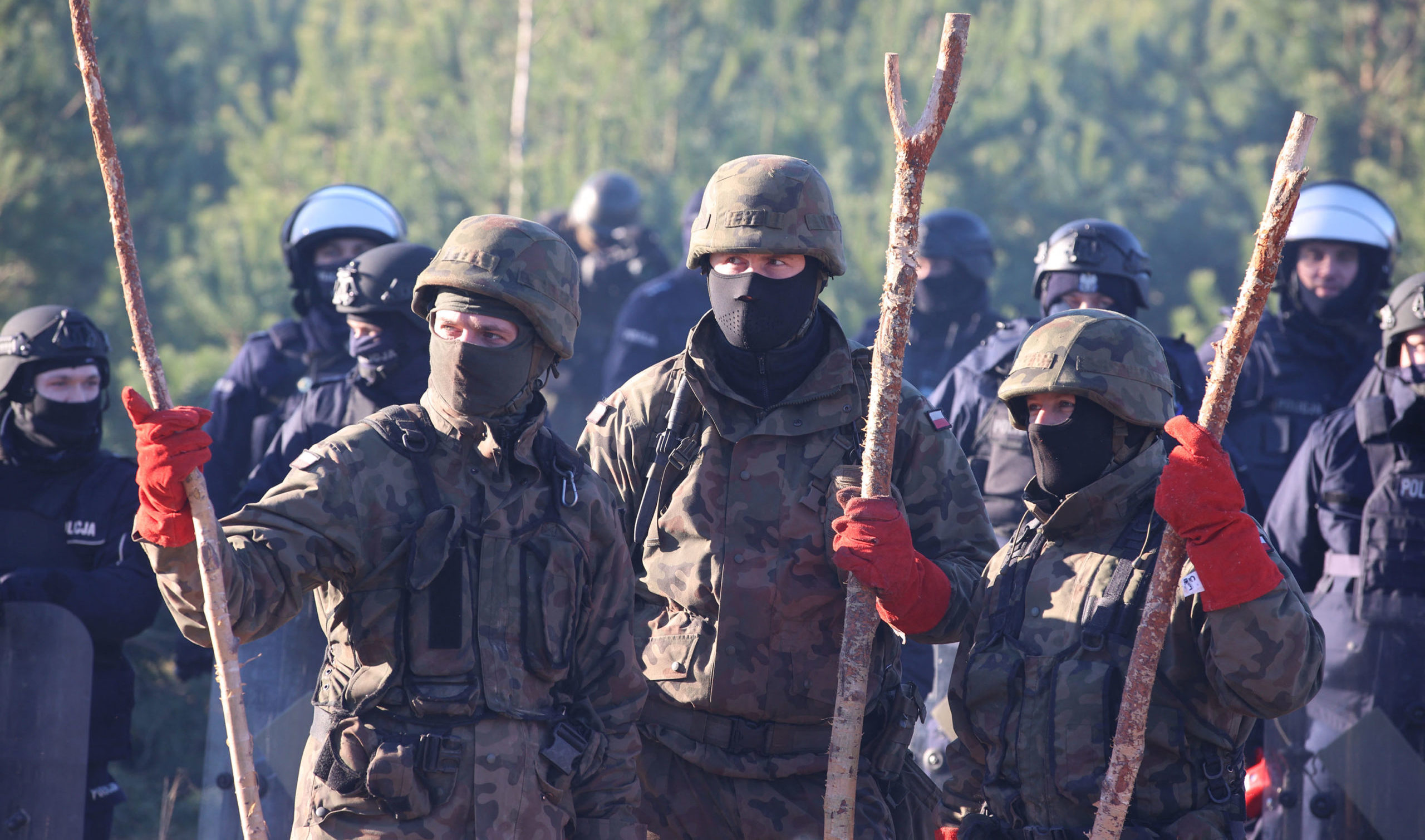If the dramatic images of hundreds of migrants massed together on the Polish border, facing off against a wall of Polish soldiers and border guards, don’t already underline that the Merkel era is over, Germany’s response surely should. The line among Germany’s political class now seems to be that 2015 was the right thing to do, and must never be repeated, with the general secretary of her CDU party tweeting that:
Indeed, Germany’s Interior Minister Horst Seehofer has briefed the tabloid Bild that “we must help the Polish government secure their external border,” noting that “the Poles have reacted correctly so far,” and that “we cannot criticise them for securing the EU’s external border with admissible means. The Poles are fulfilling a very important service for the whole of Europe” in the face of the “hybrid threat” of “politically organised migration.”
It’s clear now that the EU will not accept a repeat of 2015’s great humanitarian experiment, but the expectation had been that Europe’s 2021 border crisis would be a product of Afghanistan’s fall to the Taliban. But instead, it’s primarily Kurds from Iraq’s autonomous Kurdistan Regional Government (KRG) who find themselves trapped in the no-man’s land between Belarus and Poland, weaponised by Belarus’ autocrat Alexander Lukashenko as payback for the EU’s support for his country’s opposition-in-exile, and fleeing their homeland’s economic and political mismanagement.
For the first time, KRG has intruded into Europe’s political consciousness as a source of crisis, an uncomfortable shift from its previous role as a valued partner in the fight against ISIS. KRG also seems to be the primary source of the migrants huddling in Calais for the clandestine smuggling route across the Channel to Britain, a growing headache for our own government.
It’s notable then that, along with deepening sanctions on Belarus, the President of the European Commission Ursula von der Leyen has vowed to travel “to the main countries of origin and of transit to ensure that they act to prevent their own nationals falling into the trap set by the Belarusian authorities,” as well as blacklist “third country airlines” enabling the migratory flow. The likelihood is that the trapped Kurds — who as economic migrants are not eligible for asylum in the EU — will be swiftly flown home, and their political leaders pressured not to allow a repeat.
As Greeks have noted, the positive EU response to Poland’s militarised border management came far more swiftly and unanimously than when Greece faced the same tactics last year, after Erdogan bussed thousands of migrants to the border in the first — but surely not the last— open deployment of human misery as a weapon against Europe. No doubt, both Lukashenko and Putin are easier for the EU to rail against than Erdogan, who German leaders especially are still fearful to confront.
But with Lebanon hurtling towards collapse and Afghanistan’s tragedy far from over, European leaders are settling on a policy of border fortification and pushback when it comes to sudden migratory flows, whatever their rhetoric to the contrary: now its usefulness to Europe’s enemies has been proven, the postwar asylum regime looks like a relic of a different era. From the Aegean to the Baltic, ranks of soldiers behind shields and men on horseback are patrolling the continent’s growing line of border walls: Europe’s 21st century already looks distinctly premodern.











Join the discussion
Join like minded readers that support our journalism by becoming a paid subscriber
To join the discussion in the comments, become a paid subscriber.
Join like minded readers that support our journalism, read unlimited articles and enjoy other subscriber-only benefits.
Subscribe